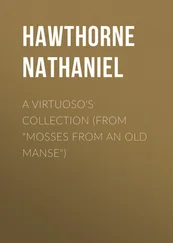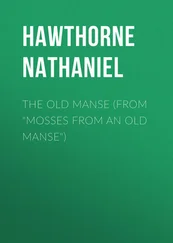Nathaniel Hawthorne - Old News
Здесь есть возможность читать онлайн «Nathaniel Hawthorne - Old News» — ознакомительный отрывок электронной книги совершенно бесплатно, а после прочтения отрывка купить полную версию. В некоторых случаях можно слушать аудио, скачать через торрент в формате fb2 и присутствует краткое содержание. Жанр: literature_19, foreign_antique, foreign_prose, на английском языке. Описание произведения, (предисловие) а так же отзывы посетителей доступны на портале библиотеки ЛибКат.
- Название:Old News
- Автор:
- Жанр:
- Год:неизвестен
- ISBN:нет данных
- Рейтинг книги:3 / 5. Голосов: 1
-
Избранное:Добавить в избранное
- Отзывы:
-
Ваша оценка:
- 60
- 1
- 2
- 3
- 4
- 5
Old News: краткое содержание, описание и аннотация
Предлагаем к чтению аннотацию, описание, краткое содержание или предисловие (зависит от того, что написал сам автор книги «Old News»). Если вы не нашли необходимую информацию о книге — напишите в комментариях, мы постараемся отыскать её.
Old News — читать онлайн ознакомительный отрывок
Ниже представлен текст книги, разбитый по страницам. Система сохранения места последней прочитанной страницы, позволяет с удобством читать онлайн бесплатно книгу «Old News», без необходимости каждый раз заново искать на чём Вы остановились. Поставьте закладку, и сможете в любой момент перейти на страницу, на которой закончили чтение.
Интервал:
Закладка:
The elaborate solemnities of funerals were in accordance with the sombre character of the times. In cases of ordinary death, the printer seldom fails to notice that the corpse was "very decently interred." But when some mightier mortal has yielded to his fate, the decease of the "worshipful" such-a-one is announced, with all his titles of deacon, justice, councillor, and colonel; then follows an heraldic sketch of his honorable ancestors, and lastly an account of the black pomp of his funeral, and the liberal expenditure of scarfs, gloves, and mourning rings. The burial train glides slowly before us, as we have seen it represented in the woodcuts of that day, the coffin, and the bearers, and the lamentable friends, trailing their long black garments, while grim Death, a most misshapen skeleton, with all kinds of doleful emblems, stalks hideously in front. There was a coach maker at this period, one John Lucas, who scents to have gained the chief of his living by letting out a sable coach to funerals. It would not be fair, however, to leave quite so dismal an impression on the reader's mind; nor should it be forgotten that happiness may walk soberly in dark attire, as well as dance lightsomely in a gala-dress. And this reminds us that there is an incidental notice of the "dancing-school near the Orange-Tree," whence we may infer that the salutatory art was occasionally practised, though perhaps chastened into a characteristic gravity of movement. This pastime was probably confined to the aristocratic circle, of which the royal governor was the centre. But we are scandalized at the attempt of Jonathan Furness to introduce a more reprehensible amusement: he challenges the whole country to match his black gelding in a race for a hundred pounds, to be decided on Metonomy Common or Chelsea Beach. Nothing as to the manners of the times can be inferred from this freak of an individual. There were no daily and continual opportunities of being merry; but sometimes the people rejoiced, in their own peculiar fashion, oftener with a calm, religious smile than with a broad laugh, as when they feasted, like one great family, at Thanksgiving time, or indulged a livelier mirth throughout the pleasant days of Election-week. This latter was the true holiday season of New England. Military musters were too seriously important in that warlike time to be classed among amusements; but they stirred up and enlivened the public mind, and were occasions of solemn festival to the governor and great men of the province, at the expense of the field-offices. The Revolution blotted a feast-day out of our calendar; for the anniversary of the king's birth appears to have been celebrated with most imposing pomp, by salutes from Castle William, a military parade, a grand dinner at the town-house, and a brilliant illumination in the evening. There was nothing forced nor feigned in these testimonials of loyalty to George the Second. So long as they dreaded the re-establishment of a popish dynasty, the people were fervent for the house of Hanover: and, besides, the immediate magistracy of the country was a barrier between the monarch and the occasional discontents of the colonies; the waves of faction sometimes reached the governor's chair, but never swelled against the throne. Thus, until oppression was felt to proceed from the king's own hand, New England rejoiced with her whole heart on his Majesty's birthday.
But the slaves, we suspect, were the merriest part of the population, since it was their gift to be merry in the worst of circumstances; and they endured, comparatively, few hardships, under the domestic sway of our fathers. There seems to have been a great trade in these human commodities. No advertisements are more frequent than those of "a negro fellow, fit for almost any household work"; "a negro woman, honest, healthy, and capable"; "a negro wench of many desirable qualities"; "a negro man, very fit for a taylor." We know not in what this natural fitness for a tailor consisted, unless it were some peculiarity of conformation that enabled him to sit cross-legged. When the slaves of a family were inconveniently prolific, – it being not quite orthodox to drown the superfluous offspring, like a litter of kittens, – notice was promulgated of "a negro child to be given away." Sometimes the slaves assumed the property of their own persons, and made their escape; among many such instances, the governor raises a hue-and-cry after his negro Juba. But, without venturing a word in extenuation of the general system, we confess our opinion that Caesar, Pompey, Scipio, and all such great Roman namesakes, would have been better advised had they stayed at home, foddering the cattle, cleaning dishes, – in fine, performing their moderate share of the labors of life, without being harassed by its cares. The sable inmates of the mansion were not excluded from the domestic affections: in families of middling rank, they had their places at the board; and when the circle closed round the evening hearth, its blaze glowed on their dark shining faces, intermixed familiarly with their master's children. It must have contributed to reconcile them to their lot, that they saw white men and women imported from Europe as they had been from Africa, and sold, though only for a term of years, yet as actual slaves to the highest bidder. Slave labor being but a small part of the industry of the country, it did not change the character of the people; the latter, on the contrary, modified and softened the institution, making it a patriarchal, and almost a beautiful, peculiarity of the times.
Конец ознакомительного фрагмента.
Текст предоставлен ООО «ЛитРес».
Прочитайте эту книгу целиком, купив полную легальную версию на ЛитРес.
Безопасно оплатить книгу можно банковской картой Visa, MasterCard, Maestro, со счета мобильного телефона, с платежного терминала, в салоне МТС или Связной, через PayPal, WebMoney, Яндекс.Деньги, QIWI Кошелек, бонусными картами или другим удобным Вам способом.
Интервал:
Закладка:
Похожие книги на «Old News»
Представляем Вашему вниманию похожие книги на «Old News» списком для выбора. Мы отобрали схожую по названию и смыслу литературу в надежде предоставить читателям больше вариантов отыскать новые, интересные, ещё непрочитанные произведения.
Обсуждение, отзывы о книге «Old News» и просто собственные мнения читателей. Оставьте ваши комментарии, напишите, что Вы думаете о произведении, его смысле или главных героях. Укажите что конкретно понравилось, а что нет, и почему Вы так считаете.











